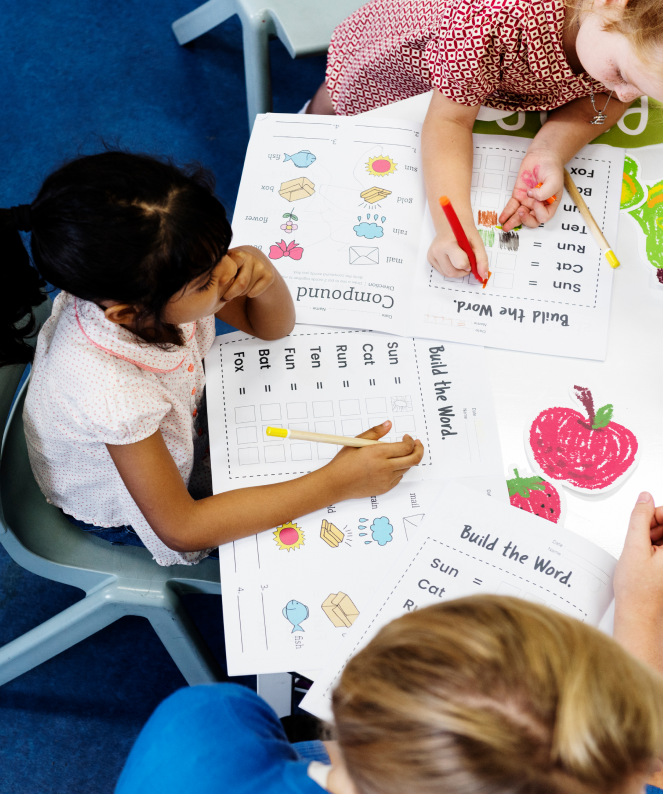Helping Your High Achievers Overcome Common Challenges: Simple Strategies for Big Impact
Helping Your High Achievers Overcome Common Challenges: Simple Strategies for Big Impact
Published: Sunday, August 4, 2024
As parents of high achievers, you know the unique challenges that come with raising children who strive for excellence. From needing constant reminders to getting distracted by phones, these hurdles can often seem overwhelming. However, seeing a change in our children means we need to make some changes too. Don’t worry—these strategies are designed to fit into your busy schedule and will bring about significant improvements without adding extra work.
1. Needing Constant Reminders
What We Usually Do:
- Constantly Reminding and Nagging: We often end up reminding our kids about their tasks repeatedly, which gets frustrating and tiring.
What We Should Do Instead:
- Visual Reminders: Set up a visual schedule or checklist that your child can look at throughout the day. A whiteboard in their study area or a digital app works well.
- Set Alarms and Notifications: Teach your child to set alarms or use calendar notifications for important tasks and deadlines. This way, they’ll develop responsibility and you won’t need to keep reminding them.
These small changes can save you time and help your child become more self-sufficient.
2. Difficulty Prioritizing Tasks
What We Usually Do:
- Taking Over Planning: We often step in to organize our child’s schedule, which makes them dependent on us for task management.
What We Should Do Instead:
- Create an Eisenhower Matrix: Show your child how to divide tasks into four categories:
- Urgent and important
- Important but not urgent
- Urgent but not important
- Neither urgent nor important
- Daily Planning Sessions: Spend just a few minutes each evening helping your child organize their tasks for the next day using the matrix. This will improve their time management and reduce stress.
This small investment of time will make a big difference in helping your child stay organized and focused.
3. Last Minute Assignments
What We Usually Do:
- Helping with Last-Minute Rush: We assist our kids in completing assignments at the last minute, which increases stress for both of us.
What We Should Do Instead:
- Implement the Pomodoro Technique: Encourage your child to work in short, focused bursts (25 minutes of work followed by a 5-minute break). After four cycles, they can take a longer break.
- Use Timers: Provide a timer or use a Pomodoro app to help them stick to this schedule. This technique can boost focus and productivity, ensuring tasks are completed well before the deadline.
Using this method helps children manage their time better without needing constant supervision.
4. Lacking Motivation for Important Tasks
What We Usually Do:
- Constant Encouragement: We continuously try to motivate our kids, which can be exhausting and ineffective over time.
What We Should Do Instead:
- Set SMART Goals: Help your child set Specific, Measurable, Achievable, Relevant, and Time-bound goals. This makes goals more concrete and attainable.
- Reward System: Establish a reward system where your child earns small rewards for completing tasks. This could be extra screen time, a favorite snack, or a fun outing. Positive reinforcement can significantly boost motivation.
These strategies can keep your child motivated without requiring constant encouragement from you.
5. Phones Distracting Study Time
What We Usually Do:
- Constantly Monitoring Screen Time: We try to keep an eye on our child’s phone usage, which can be time-consuming and often leads to conflicts.
What We Should Do Instead:
- Create a Distraction-Free Study Zone: Designate a specific area for studying where phones and other distractions are not allowed.
- Scheduled Phone Breaks: Set specific times when your child can check their phone, reducing the urge to look at it during study time. For example, after each Pomodoro session, they can have a quick check-in during their break.
By setting these boundaries, you can help your child stay focused without having to constantly monitor their screen time.
Your Takeaway
As parents, it’s vital to equip our children with the tools and strategies they need to overcome these common challenges. By implementing these simple, actionable strategies, we can make a big impact on our children’s ability to manage their time, stay focused, and maintain motivation. Remember, seeing a change in our children means making a change in how we approach these challenges. These small adjustments will bring about significant improvements without adding extra work to your busy schedule.
Top students need to develop strong critical thinking skills. It’s not just about getting good grades; it’s about being able to analyze information, make smart decisions, and solve problems effectively. At Wholesome Learning, we focus on nurturing these skills through engaging and meaningful activities, not dull drills.
Ready for your next step?
Schedule your evaluation now!


